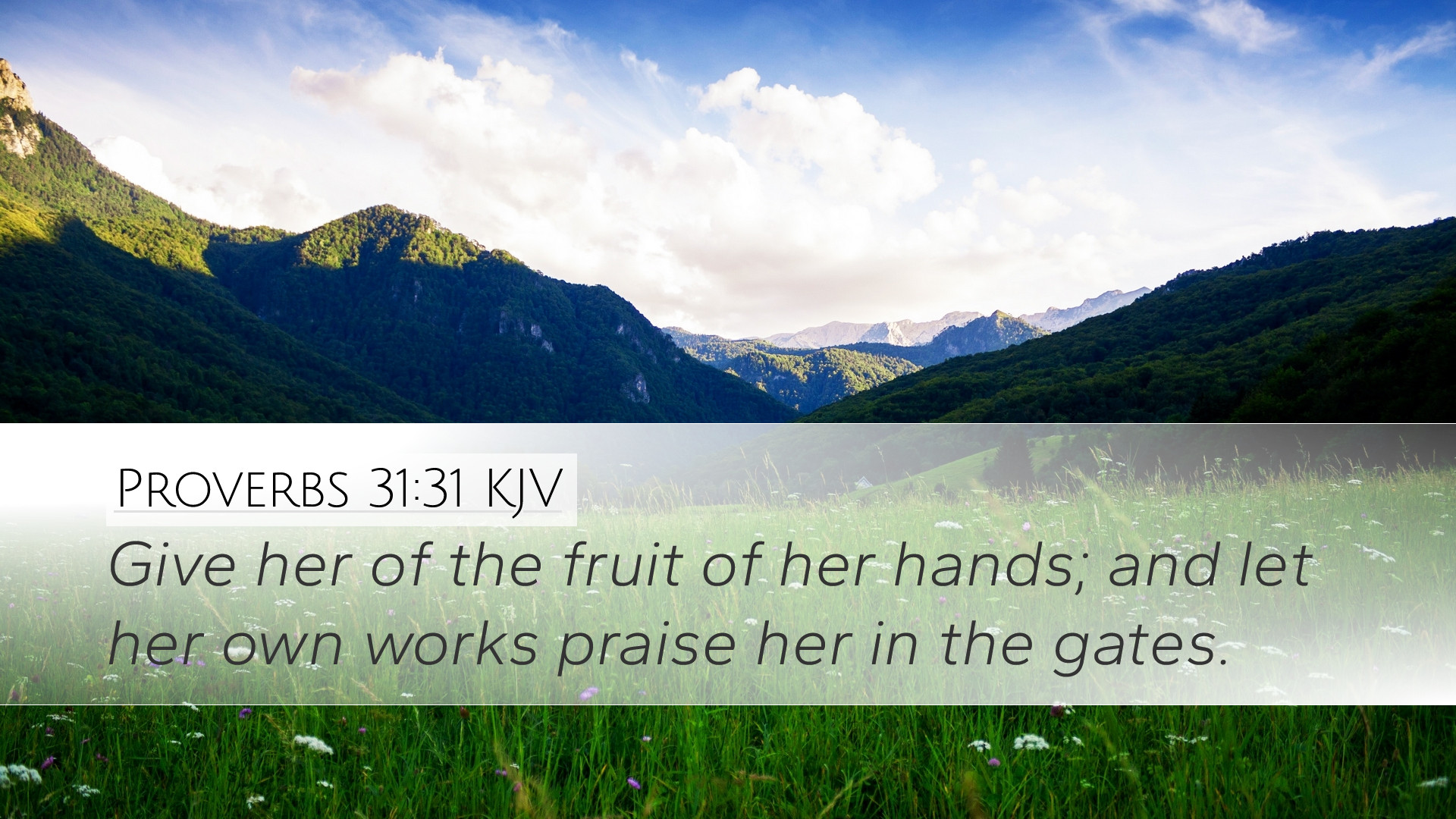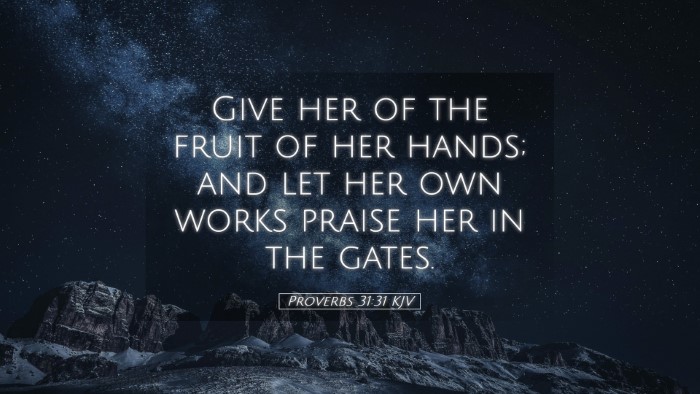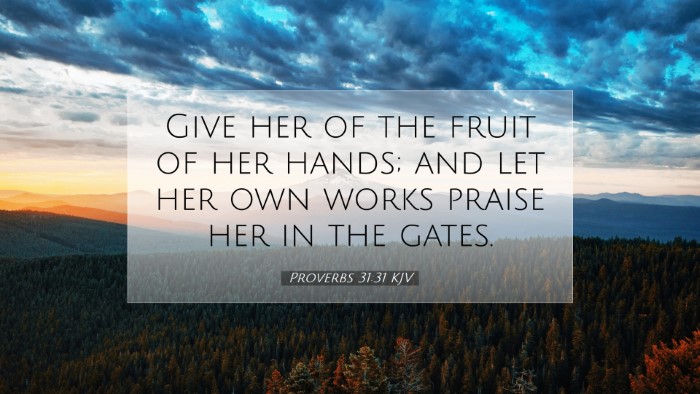Proverbs 31:31 Commentary
Verse: "Give her of the fruit of her hands; and let her own works praise her in the gates."
Overview: Proverbs 31:31 serves as the culmination of the chapter that depicts the virtuous woman—a figure celebrated for her strength, wisdom, and industriousness. This verse encapsulates the idea that a woman’s value and contributions should be acknowledged and praised within the community.
Insights from Commentaries
Matthew Henry's Commentary
Matthew Henry emphasizes the importance of recognizing the virtuous qualities of the woman described in Proverbs 31. He notes that the exhortation to "give her of the fruit of her hands" suggests that the fruits of her labor should be shared and appreciated.
Henry further explains that this acknowledgment is not merely a token gesture but represents a deeper reverence for her contributions, which should inspire honor and praise within the community. The phrase "let her own works praise her in the gates" signifies the public recognition of her deeds, indicating that a noble woman’s actions create a legacy that commands respect among her peers.
Moreover, Henry draws parallels to the broader biblical themes of justice and recognition, illustrating how biblical women consistently exemplify God’s virtues and contribute significantly to life and community.
Albert Barnes' Notes on the Bible
Albert Barnes provides a practical exposition of Proverbs 31:31, regarding the implications of "the fruit of her hands." He reflects on the idea that the virtuous woman’s labor, symbolized by "fruit," not only benefits her family but is also of manifold benefit to society. This labor includes both her domestic duties and her capacity to contribute economically.
- Acknowledgment of Service: Barnes points out that it is crucial for society to recognize and celebrate women’s contributions.
- Community Impact: He suggests that a woman’s positive influence begins in her home but resonates throughout her community, hence "in the gates" refers to her societal engagements.
Furthermore, Barnes insists that praise should not be passive; it should be a deliberate act from those around her. He asserts that acknowledgment and praise are essential to not only validate her contributions but also to motivate future service, thus creating an environment of encouragement.
Adam Clarke's Commentary
Adam Clarke provides an insightful analysis of the representation of women within Proverbs. He notes that this woman is portrayed not simply as a wife or mother but as a figure of competence and leadership, suggesting a need for mutual respect and recognition from both husband and society.
Clarke delves into the significance of the public acknowledgment, pointing out that her works should be recognized "in the gates," which is emblematic of places of decision-making and authority in ancient Israel.
- Restoring Honor: Clarke highlights that this verse calls for the restoration of honor to women, linking honor with the blessings of their labors—not through mere words, but through actions and community recognition.
- Encouragement of Virtue: He argues that this verse serves as an encouragement for women to pursue virtue actively, knowing that their efforts will bear recognition and reward.
In conclusion, Clarke sees this verse as a powerful reminder of the potential of women to shape society positively, urging communities to create environments where women’s contributions are celebrated.
Theological Reflection
The overall message of Proverbs 31:31 transcends mere recognition; it calls for a profound appreciation of the inherent value and dignity of women’s work within the framework of God's design for family and society. The verse invites pastors, students, and theologians to reflect on the implications of gender roles in contemporary society and the church.
- Recognition in Ministry: In ecclesiastical contexts, it mirrors the expectation that the gifts and callings of women should be given an equal platform for acknowledgment and ministry.
- Gender Equality Considerations: The verse also raises questions about gender equity in work environments, encouraging deeper discussions on how to honor both women’s labor and leadership.
Conclusion
Proverbs 31:31 provides a rich tapestry of theological and social implications, encapsulating the necessity of honoring the diligent works of women. Through the insights of Matthew Henry, Albert Barnes, and Adam Clarke, it becomes evident that the proper acknowledgment of a virtuous woman not only uplifts individuals but fortifies the community. By fostering a culture that recognizes the "fruit of her hands," we embody the principles of equity and honor ordained by God, leading to a society that thrives on mutual respect and collaboration.


